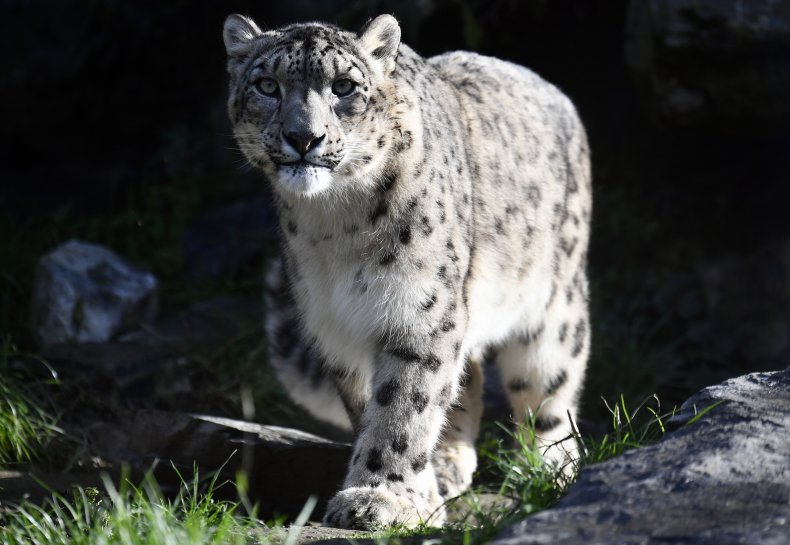Three Snow Leopards at Nebraska Zoo Die of COVID a Month After Testing Positive
A trio of snow leopards at a Nebraska zoo died of COVID-19 one month after contracting the virus, zoo officials said Friday.
The Lincoln Children's Zoo stated that Ranney, Everest, and Malaku all succumbed to COVID-19-related complications. The three snow leopards had first tested positive for COVID on October 13, along with a pair of Sumatran tigers who have since made a full recovery.
Veterinarians attempted to treat the snow leopards with an aggressive regimen of steroids and antibiotics that ultimately proved unsuccessful.
"Our leopards ... were beloved by our entire community inside and outside of the zoo," the Lincoln Children's Zoo said in a statement on Facebook.
However, the zoo reiterated that it would remain open to the public.
"[The zoo] remains open to the public and continues to take every precaution to prevent the spread of COVID-19 to humans and animals," the statement continued. "We will continue following the American Association of Zoo Veterinarians (AAZV) and CDC guidelines to ensure the safety of our animals, staff, and community."
A spokesperson for the zoo added that "it is very tough to lose any animal unexpectedly, especially one as rare and loved as the snow leopard."
The trio passed away just one month after another snow leopard at the Great Plains Zoo also died from a suspected COVID infection. An Amur tiger at that zoo also contracted COVID around the same time.

While COVID-19 infections in animals are rare, they are not unheard of. While the CDC does not know the exact number of species susceptible to the virus, many zoos have already begun using spare vials of the COVID vaccine to protect their animals as a precaution.
The virus has already been identified in cats, dogs, lions, otters, tigers, and gorillas, among others. The CDC has stated that symptoms of COVID in animals could include many of the same ones seen in humans: fever, coughing, difficulty breathing, and a general lethargy.
The death of the three Lincoln snow leopards marks the heartbreaking loss of a big cat that is already facing dwindling numbers. The World Wildlife Fund (WWF) has snow leopards listed as a vulnerable species, and estimates that there are only between 4,000 to 6,500 left in the wild.
That number is expected to continue declining throughout the next few decades.
The predators of snow leopards are almost exclusively humans. The species continues to face threats from hunters and livestock farmers who perform retaliatory killings.
Poachers looking to sell the snow leopard's pelts - which can fetch thousands on the black market - are also a significant cause of the animal's downfall.
Additional threats to snow leopards also come from climate change.
The WWF estimates that the warming of the planet could cause snow leopards to lose up to 30 percent of their Himalayan habitat. The Asian mountain range is one of the few areas on Earth where snow leopards are found in the wild.
Newsweek has reached out to WWF for comment.

